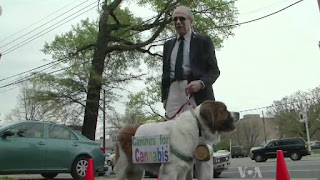"Fidel Alejandro Castro Ruz (Spanish: [fiˈðel ˈkastro]; born August 13, 1926) is a Cuban revolutionary and politician, having held the position of Prime Minister of Cuba from 1959 to 1976, and then President from 1976 to 2008. He also served as the First Secretary of the Communist Party of Cuba from the party's foundation in 1961 until 2011. Politically a Marxist-Leninist, under his administration the Republic of Cuba was converted into a one-party socialist state, with industry and business being nationalised under state ownership and socialist reforms implemented in all areas of society.
Born the illegitimate son of a wealthy farmer, Castro became involved in leftist anti-imperialist politics whilst studying law at the University of Havana. Subsequently involving himself in armed rebellions against right wing governments in the Dominican Republic and Colombia, he went on to conclude that the U.S.-backed Cuban President Fulgencio Batista, who was widely seen as a dictator, had to be overthrown; to this end he led a failed armed attack on the Moncada Barracks in 1953. Imprisoned for a year, he then traveled to Mexico, and with the aid of his brother Raúl Castro and friend Che Guevara, he assembled together a group of Cuban revolutionaries, the July 26 Movement. Returning with them to Cuba, he took a key role in the Cuban Revolution, leading a successful guerrilla war against Batista's forces, with Batista himself fleeing into exile in 1959.
Castro subsequently became Commander in Chief of the armed forces and shortly thereafter became Prime Minister. His involvement in the overthrow of Batista, as well as a suspected relationship with Soviet Premier Nikita Khrushchev, alarmed the United States, who through the CIA organised the failed Bay of Pigs invasion in 1961 to overthrow his government, before proceeding to orchestrate repeated assassination attempts against him and implement an economic blockade of Cuba. To counter this threat, Castro forged an alliance with the Soviet Union and allowed them to store nuclear weapons on the island, leading to the events of the Cuban Missile Crisis in 1962. Adopting Marxism-Leninism as his guiding ideology, in 1961 Castro proclaimed the socialist nature of the Cuban revolution, and in 1965 became First Secretary of the newly founded Communist Party, with all other parties being abolished. He then led the transformation of Cuba into a socialist republic, nationalising industry and introducing free universal healthcare and education, as well as suppressing internal opposition. A keen internationalist, Castro then introduced Cuban medical brigades who worked throughout the developing world, and aided a number of foreign revolutionary socialist groups in the hope of toppling world capitalism.
In 1976 he became President of the Council of State as well as of the Council of Ministers. On the international stage, he held the post of Secretary-General of the Non-Aligned Movement from 1979 to 1983. Following the collapse of key ally the Soviet Union in 1991, Castro led Cuba into its economic "Special Period", before then taking the country into the Bolivarian Alliance for the Americas in 2006 and forging economic and political alliances with other nations in the Latin American "Pink Tide". Amidst failing health, in 2006 Castro transferred his responsibilities to Vice-President Raúl Castro, who was then elected President when Fidel stepped down in 2008.
Castro is a controversial and highly divisive world figure, being lauded as a champion of anti-imperialism, humanitarianism, environmentalism and the world's poor by his supporters, but alternately his critics have accused him of being a dictator whose authoritarian administration has overseen multiple human rights abuses. Nonetheless, he has had a significant influence on the politics of a number of other world leaders, namely Nelson Mandela, Hugo Chávez and Evo Morales, and he is widely idolised by many leftists, socialists and anti-imperialists across the world."
When Fidel Castro came to power in Cuba, he took over for a very corrupt an authoritarian dictator, but a country that had reached an economic level, where a lot of Cubans had some financial security. And President Castro took a lot of that away. He did eliminate a lot of the corruption from the Baustista Regime, but replaced it with heavy-handed, top-down, authoritarian Communist Rule. And the Cuban people have paid a heavy price for that ever since.
But what the Communist Republic of Cuba (as I call them) ave gotten in return is a quality educational and health care system (for a third-world country) that the Cuban people have benefited from, especially for a third-world country. But the problem is that even though, Cubans tend to be well-educated because the Castro Regime has messed up the Cuban economy so much with their state-ownership economic system, where the Cuban State at one point owned the entire Cuban economy, a lot of Cuban Workers can't find the good jobs that their level of education should give them.
I get the fact that the Castro Revolutionaries wanted an independent Cuba that wouldn't be dependent on either America, Europe, Russia, or any country in Latin America, for their survival and perhaps they wanted to end the Cuba government corruption as well. But what they did was replace one authoritarian regime in the Bautista Regime from the 1950s, with another that's a lot worst off economically today, then where they were just 50 years ago.

.png)







%20-%20Google%20Search.png)







